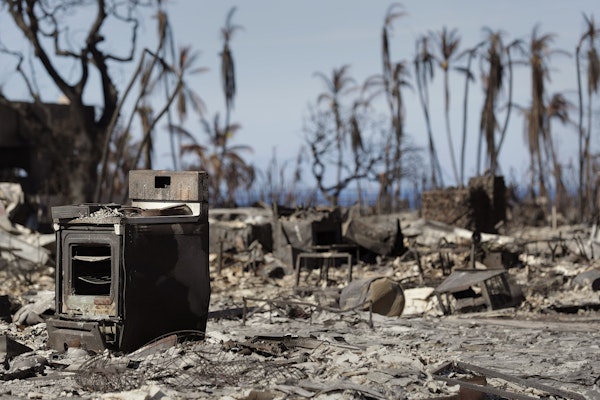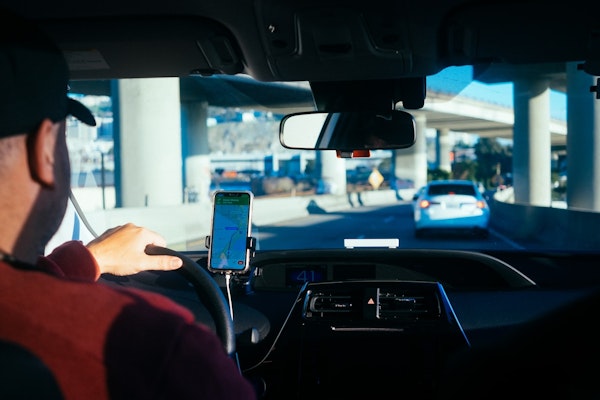
Amazon Reaches $4M Settlement Over Allegations of Withholding Flex Driver Tips
Amazon agreed to pay nearly $4 million to settle a lawsuit from Washington, D.C.’s attorney general, who alleged the company misled consumers and misused driver tips between 2016 and 2019.
February 11
Insurance Industry
Legislation & Regulation
Litigation
Risk Management
District Of Columbia

100,000 Organic Eggs Stolen from Pennsylvania Farm in Trailer Heist
Pennsylvania State Police are investigating the theft of approximately 100,000 organic eggs, valued at $40,000, from a distribution trailer at Pete and Gerry’s Organics in Greencastle.
February 11
Fraud
Insurance Industry
Property
Risk Management
Pennsylvania

Hawaii’s High Court Weighs Insurance Dispute Over Maui Wildfire Settlement
Hawaii’s Supreme Court is considering a critical insurance dispute that could determine the fate of a $4 billion settlement for victims of the devastating 2023 Maui wildfire. The case hinges on whether insurers can independently sue the defendants to recover claims they’ve paid.
February 11
Catastrophe
Litigation
Property
Subrogation
Hawaii

Survey Finds Climate Change and Wars as Top Emerging Risks
Risk managers are shifting focus toward climate change, wars, and disruptive technology as primary emerging risks, according to a recent survey by the Society of Actuaries and the Casualty Actuarial Society.
February 11
Catastrophe
Legislation & Regulation
Risk Management
Technology

The Future of P&C Insurance Claims Depends on True Transformation
The insurance claims industry has seen incremental progress over the years, but true transformation remains elusive. To keep pace with technological advancements and consumer expectations, insurers must move beyond outdated processes and fragmented solutions.
February 11
Insurance Industry
Litigation
Risk Management
Technology

Cyber Insurance Outlook for 2025: Pricing Trends, Risks, and Coverage Developments
The cyber insurance market remained favorable for buyers in 2024, with lower premiums and increased coverage options despite high-profile cyber incidents. However, risks such as supply chain attacks, regulatory enforcement, and artificial intelligence (AI) security concerns are shaping the industry’s future.
February 6
Legislation & Regulation
Litigation
Risk Management
Technology

Insurance Companies Face Growing Cyber Risks from Third-Party Attacks
The insurance industry is facing increasing cyber threats, with 59% of breaches among the top 150 insurance companies stemming from third-party attack vectors. These vulnerabilities highlight the need for stronger supply chain security.
February 6
Insurance Industry
Liability
Risk Management
Technology

Texas Law Firm Escapes $2M Fine for Alleged Hurricane Laura Insurance Fraud
A judge ruled that Louisiana’s insurance regulator lacked authority to fine McClenny, Moseley & Associates for alleged fraudulent hurricane claims, sparking further legal debate.
February 6
Catastrophe
Fraud
Legislation & Regulation
Litigation
Louisiana
Texas

Allstate Projects $900 Million in Reinsurance Recoveries from LA Wildfires
Allstate anticipates recovering $900 million through its reinsurance program after estimating $2 billion in gross losses from the Los Angeles wildfires. This will result in a net loss of $1.1 billion for the insurer.
February 6
Catastrophe
Insurance Industry
Property
Risk Management
California

Uber Not Liable for Driver’s Assault on Passenger, Judge Rules
A federal judge ruled that Uber isn’t liable for an assault by one of its drivers, dismissing a passenger’s lawsuit. The court found no evidence that Uber knew of the driver’s violent tendencies.
February 6
Insurance Industry
Legislation & Regulation
Liability
Litigation
Pennsylvania

Tort Costs Rising Faster Than Inflation and GDP, Study Finds
A new study from the Institute for Legal Reform reveals that U.S. tort costs have risen at an annual rate of 7.1% from 2016 to 2022, exceeding both inflation and GDP growth.
February 6
Insurance Industry
Legislation & Regulation
Liability
Litigation
Alaska
California
Delaware
Florida
Louisiana

Federal Appeals Court Questions Google’s Monopoly Defense in Epic Games Case
A federal appeals court panel expressed skepticism over Google’s argument that competition with Apple justifies overturning a jury’s ruling that declared its Android app policies an illegal monopoly.
February 5
Legislation & Regulation
Litigation
Risk Management
Technology
California
District Of Columbia
Virginia

Super Bowl Monday Absenteeism To Hit Record High
As millions of football fans tune in for Super Bowl LIX, a record-breaking 22.6 million U.S. employees are expected to miss work the following Monday. Employers must plan ahead to address absenteeism, productivity dips, and workplace engagement challenges.
February 5
Insurance Industry
Legislation & Regulation
Risk Management
Workers' Compensation

Economic Fallout from Los Angeles Wildfires Could Reach $164 Billion, UCLA Forecasts
The devastating January 2025 Los Angeles wildfires could result in $95 billion to $164 billion in total losses, including $75 billion in insured claims, along with GDP declines, job losses, and rising insurance costs.
February 5
Catastrophe
Legislation & Regulation
Property
Risk Management
California

Boston Proposes Permit Requirement for Food Delivery Apps
A proposed ordinance would require food delivery services like DoorDash and UberEats to obtain a city permit, carry insurance for drivers, and share delivery data with officials.
February 5
Insurance Industry
Legislation & Regulation
Liability
Risk Management
Massachusetts





